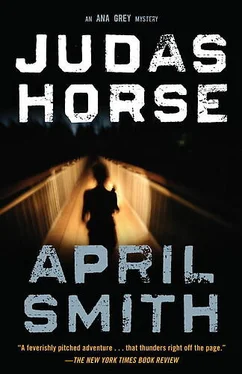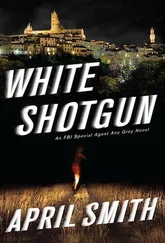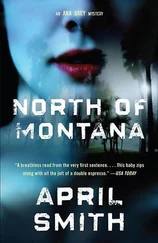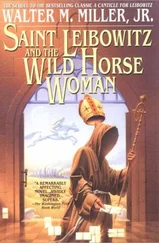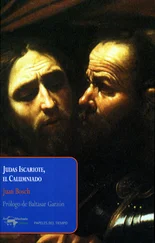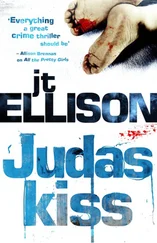I find Darcy’s banged-up Civic waiting for me in the parking lot. The freeway is empty under an eggshell blue sky and everywhere there are flowering trees.
So this is what people who don’t live in Los Angeles call spring.
I leave the quiet of the holiday freeway and wind through the southeast part of town, until the road becomes a two-lane blacktop fronted by clapboard duplexes and airless Victorians with weed-strewn yards. A person in transit would live in a transitional neighborhood, we figured, where radicals mix in with blue-collar families on the scrubby streets.
I park in the long light of a late northwest afternoon, pulling up in front of a small four-story brick building built a century ago. Darcy’s rental apartment is on the top floor. I stare at the empty windows.
The loneliest time.
The lights of downtown Portland beckon like a seaport in the mist, gently bobbing through the rain-streaked windshield as the Civic bumps along. Beside the Burnside Bridge, homeless men are scrabbling through a glistening mountain of garbage bags left over from the food and crafts market, held on weekends under the shelter of the iron span. Bent-over figures dragging bundles and wet cardboard cartons stop in front of the men’s rescue mission to trade cigarettes in the rain. They look impossibly old to be foraging on the skids.
Over the course of my second day in town, the crystalline weather had given way to tiers of clouds, moving and melding, waiting and cruising. As drops of rain tapped the windows of Darcy’s apartment, I watched the street and waited for nightfall. Within a block of her building, there was a mom-and-pop grocery with psychedelic flowers painted on the windows, and an Asian market where you could get live chickens. There were peeling cottages with bay windows curtained by cut lace beside postmodern town houses. There was a hip designer resale store, as well as a Laundromat and a fifties coffee shop that was now a vegan restaurant called the Cosmic Café. The sidewalks were overgrown with marigold and outlaw mint.
What did Darcy DeGuzman think, looking out the window?
I could have a life here.
The furnished apartment, with its wicker bookcases and new TV and nesting aluminum pots under the sink, smelled like the musty fake storefronts in Hogan’s Alley at the FBI Academy. This, too, was a stage set — but the action was real and I was working to weave it all together in the existent world: How did Steve Crawford’s last known location at a downtown dive called Omar’s Roadhouse tie in with a radical group that likes to play with explosives?
I wondered if rain was falling on the bare steaming backs of wild mustangs in the high desert to the east; and if the ultimate sacrifice that Steve Crawford made would turn out to be a small and hollow loss in a larger war to defend their freedom.
The person who knew was Marvin Gladstone.
“Aw hell,” said Donnato the day Galloway introduced us to Gladstone at the off-site. “Do we have to talk to Marvin?”
Special Agent Marvin Gladstone had the ill luck of having been Crawford’s handler, the last person to see him alive.
He was sitting on a folding chair outside the dank little room in which we were meeting, looking like the last man on earth. He was wearing a windbreaker and visitor’s tags — the former employee who was no longer part of the working world. Since his abrupt departure, he had puffed up twenty pounds. With his crew-cut gray head downcast, pink jowls lax, and hands in his lap, he was the picture of middle-aged male depression.
As a handler, you can’t do worse than losing your undercover, and Marvin, no way around it, had lost Steve. Stricken with grief, he’d resigned from the Bureau the day Steve’s remains were identified. In doing so, he gave up his pension.
When Galloway called out to him in the hall, Marvin straightened up and walked into the room with an attempt at Navy pride. He did not remove his windbreaker but reached into a pocket for a road map of Oregon. Poignantly, he had brought a map, as if to show us all the stations of his shame.
“I’ve been thinking it would make sense for the next undercover to start by picking up the trail where Steve left off.”
Galloway’s tone was mocking. “Good plan, Marvin. Steve was one of the finest agents to come through here. You think we’re going to cock around?”
“No, sir.”
Donnato and I did not like having Marvin Gladstone in the room, either. It was as if minutes before boarding our flight we had met a pilot who had been in a plane crash. Would you really want to strike up a conversation? Gladstone’s breath as he leaned over the desk smelled like old library books, like what is dead and gone.
“The trail stopped at an anarchist hangout in downtown Portland called Omar’s Roadhouse.” Marvin pointed to the map with a stubby finger. “Crawford’s last known location. The last place he called me from.”
“What was your last conversation like?”
“Nothing out of the ordinary.”
“What was Steve doing there?”
“Watching a basketball game. After that, no communication.”
“Why Omar’s Roadhouse?”
“Omar’s is a marketplace for illegal goods. You have your bikers, your druggies, your interstate theft. Steve had a theory that FAN was being financed by methamphetamine labs and that the dealers went to Omar’s to do business. They’ve got a lot of those labs in the mountains.”
“Is that why he went into the national park?”
“I’m sorry,” Marvin said. “I can’t tell you.”
“Steve deserves better,” Galloway reminded him.
“I’m not making excuses, but it was not unusual for Steve to drop off the radar. I tried to rein him in, but sometimes he’d go dark for a couple of days. I should have done a better job,” he added, and stood there like a prisoner with his eyes out of focus.
By that time, I had run out of what remained of my sympathy for Marvin Gladstone. Steve had been a pro — if he’d needed reining in, it was for a reason, and the old codger should have found out why.
“What’s the place like?” I asked with false politeness. “Omar’s Roadhouse? Because I’m going there.”
Marvin woke up. “You?” He looked at me — five four, 112 pounds — and then he looked around the room. “Alone?”
“Ana is the undercover,” Galloway explained.
“I’m here to tell you.” Marvin’s eyes were wide. “Omar’s is rough trade.”
Now it is night and I am driving alone, past the men’s rescue mission, down a dark cobblestone lane once lined with shipping companies and foreign brokerage houses. At the turn of the last century, they called this street the “gateway to the Orient,” but tonight it is another deserted business district in twenty-first-century global America — vintage stone-and-brickwork buildings overwhelmed by tall black boxes made of glass, and not a mariner in sight.
Trolley tracks, gleaming dully, curve into the diminishing light, where between two seedy parking lots a nondescript tavern of red timber, punched out with a row of small and unfriendly windows, identifies itself as one of those everlasting beacons of alcoholic wretchedness that through the ages have drawn the outcasts of the world — those who suffer, shuffle, buy or sell.
Steve Crawford’s last known location.
I park in a smattering of broken glass.
Like many of us, Omar’s Roadhouse has two sides.
There are two separate entrances to help you choose between Omar’s Café and simply the bar. Inside, the common air is infused with cigarette smoke, the division between the two just a booth with a maple-stained partition, as if to prove the boundary between criminal and not is as makeshift as a quarter-inch piece of plywood.
Читать дальше
